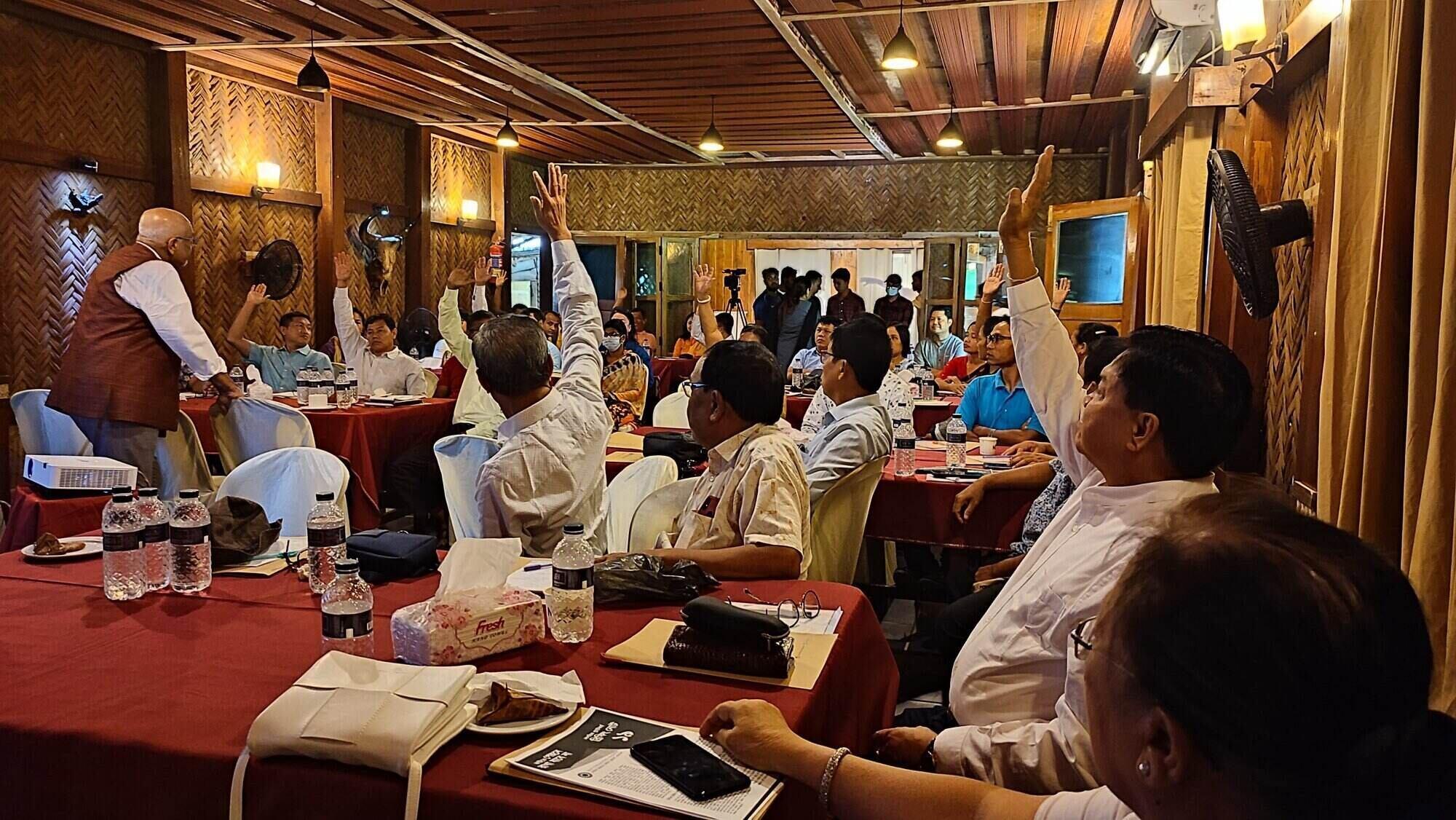
Citizen’s Platform for SDGs, Bangladesh, organised its sixth sub-national consultation meeting in Rangamati on Saturday, 1 October 2022 which was preceded by a series of meetings in Rangpur, Khulna, Tangail, Sylhet and Thakurgaon. The meeting was attended by around 60 participants drawn from the indigenous communities of Bandarban, Khagrachari and Rangamati. The consultation was organised in partnership with United Nations Development Program (UNDP) Bangladesh and United Nations Environment Program Poverty-Environment Action.
The participants brought forth a myriad of challenges, including the state of implementation of the Chittagong Hill Tract (CHT) Peace Accord (1997), developmental difficulties, role of administration and democratic representation, and issues related to safety and security. Concerns were raised, among others, about the scarcity of pure drinking water, insufficient number of government schools and hospitals, lack of electricity, and adverse fallouts of tourism.
During the consultation meeting it was emphasised that according to the 2022 population census the tribal communities are becoming minorities in their own localities at an alarming rate. In fact, in Bandarban, Khagrachari and Rangamati indigenous people constitute 41, 49 and 58 per cent respectively of the local population.
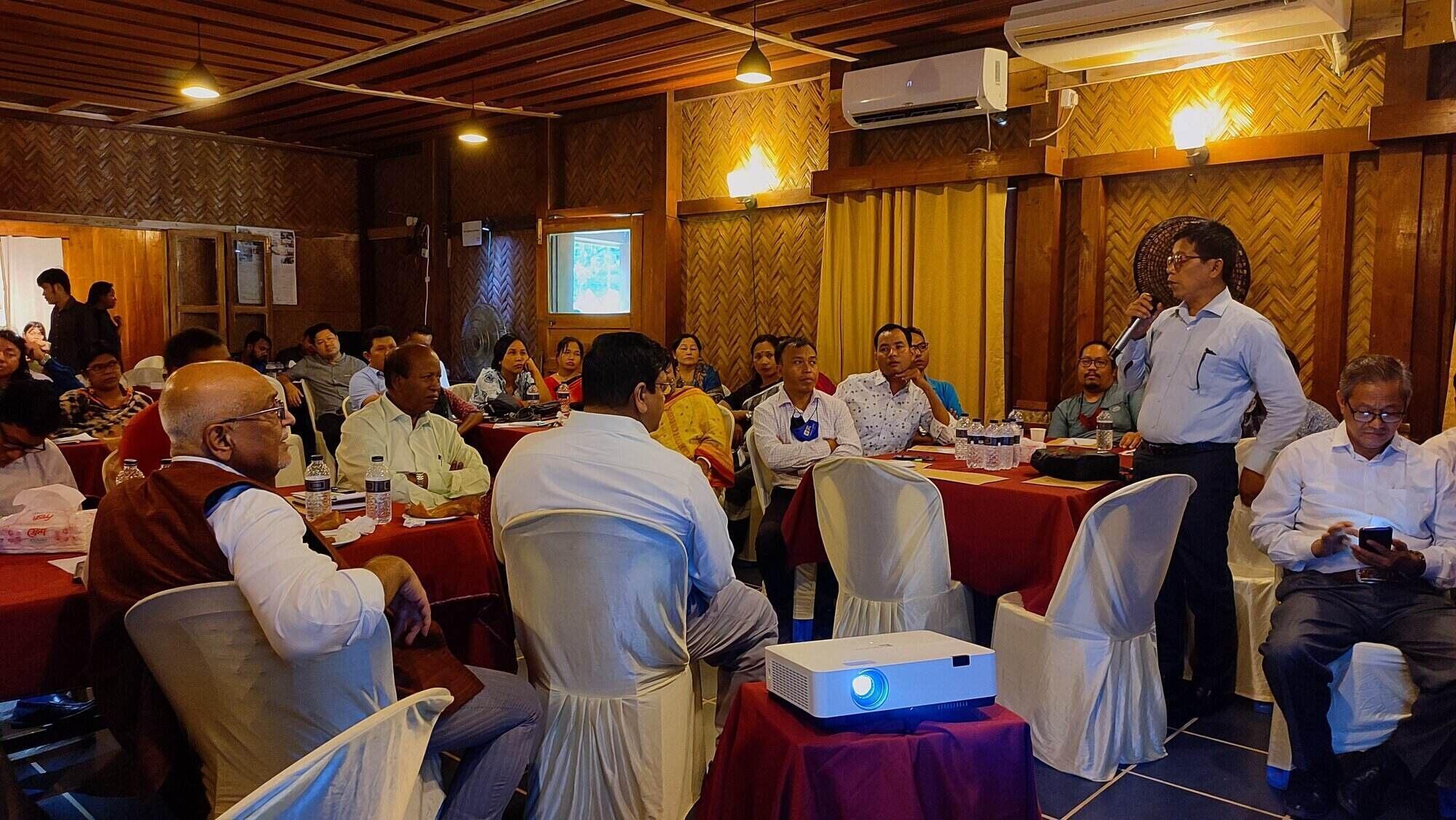 The CHT Peace Accord (1997) assured the people of CHT about safe return and rehabilitation, land reclamation and resettlement as well as education and employment opportunities. However, according to the participants, over the last 25 years, these commitments are not being adequately addressed. A signnificant number of migrants still live abroad in poor conditions. Likewise, the returnees are in no better position. The participants also mentioned the meetings of the Rehabilitation Association are infrequent and hardly productive. There is no proper funding, competent human resource or any initiative to properly execute any plan of rehabilitation.
The CHT Peace Accord (1997) assured the people of CHT about safe return and rehabilitation, land reclamation and resettlement as well as education and employment opportunities. However, according to the participants, over the last 25 years, these commitments are not being adequately addressed. A signnificant number of migrants still live abroad in poor conditions. Likewise, the returnees are in no better position. The participants also mentioned the meetings of the Rehabilitation Association are infrequent and hardly productive. There is no proper funding, competent human resource or any initiative to properly execute any plan of rehabilitation.
Moreover, the Land Commission mandated by the government is just as inactive as the Rehabilitation Association. Land grabbing in the name of development has made thousands homeless and many are living with the constant fear of losing their dwellings. Citing the example of the Mro Hill incident, the participants revealed how fires are often instigated to displace a population and grab their land.
The demand of establishing fire service stations and bringing Joom cultivators under safety net programme was also voiced. Suggestions were made to modify the current Upazila based programme of ration distribution and to address the access-related difficulties faced by those living in the remote areas.
Rehabilitation allowance provided by the government are insufficient to build houses according to the approved house design. Additionally, often government representatives demand “speed money” in exchange of rehabilitation allowance which adds further to the misery of these people.
Moreover, the insensitive decision of doing away with the government job quota for ethnic minorities was heavily criticised and pleas were made to reinstate the quota. It was voiced that the government needs to take the CHT populace into consideration while preparing the eighth Five-Year Plan (2020-2025). Furthermore, capturing the development demands of the local people, open budget discussion sessions in each CHT district could be beneficial.
People living in the hard-to-reach areas and specially those who live on the borders of two districts (Bandarban and Rangamati, Rangamati and Khagrachari) are the most deprived ones. The spring water is drying up and drinking unfiltered water results in a high number of medical emergencies in summer. The community clinics are still insufficient in providing for the local people. Appointed doctors are often ignorant and very few medicines are available upon request. There are cases where there are no schools or hospitals. Strong demands were made regarding establishing mobile network towers and reinitiating “tribal health plan” were made by the participants.
New employment opportunities might be present, but the local people can hardly access them due to lack of skills for modern tools and technologies. Thereby, the participants urged the technical training centres to broaden their curriculum as well as the incorporation of residential facilities in the centres.
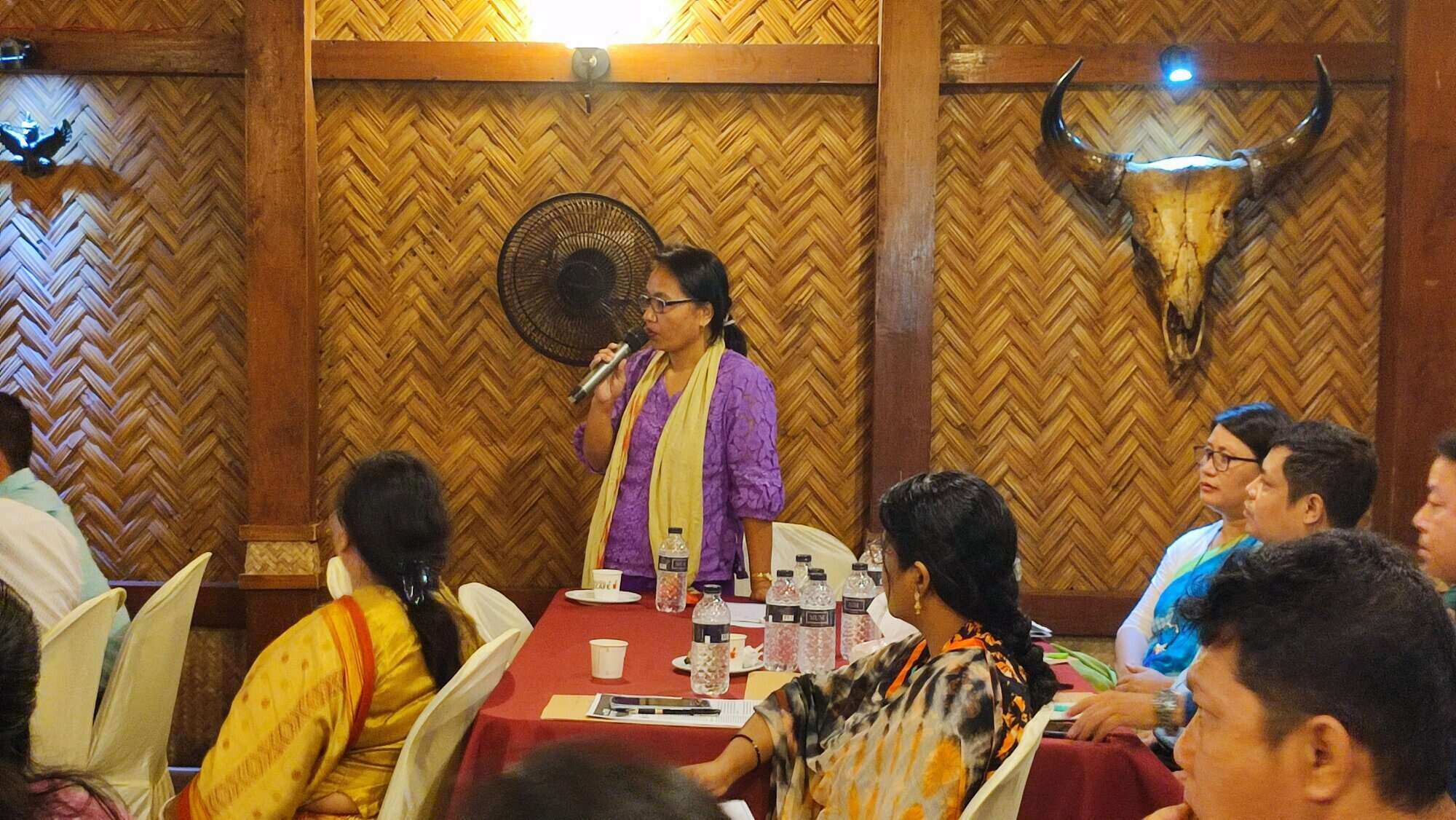 The participants specified the costs and public distress caused by the poor construction of roads. Transporting locally manufactured goods to regional markets is a challenge. Moreover, remote areas only get limited access to electricity and solar power generation equipment, provided by government, is not sufficient.
The participants specified the costs and public distress caused by the poor construction of roads. Transporting locally manufactured goods to regional markets is a challenge. Moreover, remote areas only get limited access to electricity and solar power generation equipment, provided by government, is not sufficient.
Growing tourism has added value to the local economy but at the cost of the physical and socio-cultural environment of the communities. The lack of administrative intervention and sensitivity and awareness among tourists are equally blamed for this. Tourists often enter restricted areas, litter and contaminate the forest and water sources of the local people. Even Kaptai River is being polluted due to the unplanned dumping system. The participants suggested that the district commissions can introduce tourist tax, the revenue which can be utilised for development purposes of that specific area. Most importantly, perception towards ethnic minorities has to be changed.
In order to protect biodiversity and foster forest regeneration, Forest Ministry has taken commendable initiatives, namely Village Common Forest (VCF) and Community Reserve Forest. However, VCF’s are still not legally recognised and hence can easily be discarded any day. Moreover, the new settlers hardly abide by the government rules and regulations. Resultant forest declination and unplanned rock mining often cause landslides.
Effective measures to preserve the culture and heritage of the tribal indigenous communities are yet to be implemented. Due to this, many local languages have already been lost and many are at the verge of being extinct. Cultural associations for ethnic minorities are inactive due to lack of funding and passivity of the authorities. Preparation of textbooks in languages of the ethnic minorities – a commendable initiative by the government taken in 2017 – remains unrealised due to no follow up, weak supervision and poor adaptation.
Participants pointed out that the local Members of Parliament do not really voice the concerns and interests of their constituencies. The commitments made before the elections thus remain hollow hopes. In order to exercise their voting rights, the locals need to commute long distances. Local government administrative bodies remain disengaged and passive in the local development. Due to the inadequate local representation in the administration, voices of the indigenous community remain unheard. Again, the cultural factors remain unaccounted for while planning and implementing policies.
Due to absence of up-to-date and disaggregated data, anticipatory actions and informed policy making are being hampered. On the other hand, the number of active NGOs have fallen due to reduced funding and administrative impediments. The participants suggested the inclusion of local representation in the administration and policy advocacy groups to record the concerns and account for cultural factors during decision making.
It was stated that CHT experience reveals that asymmetry in development is the real hinderance in building a peaceful society. Promoting diversity and inclusivity should be the moto of policy planning for this region.



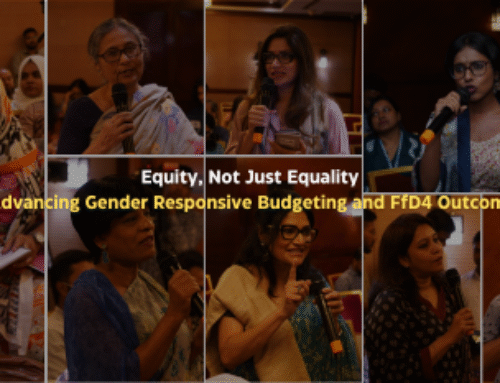
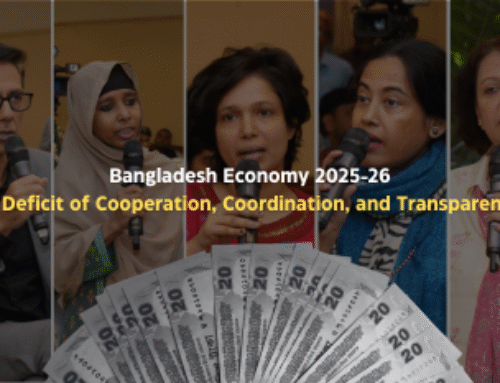
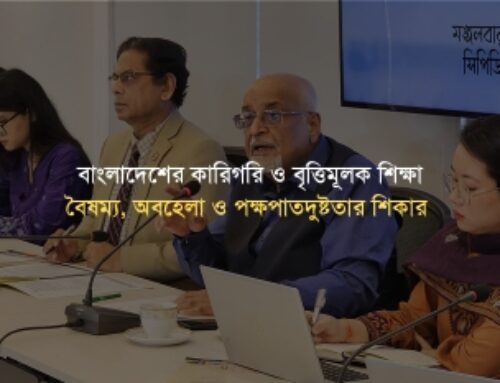
[…] ২০২২), ঠাকুরগাঁও (২৪ সেপ্টেম্বর ২০২২), রাঙ্গামাটি (১ অক্টোবর ২০২২) এবং চট্টগ্রামে (২ […]